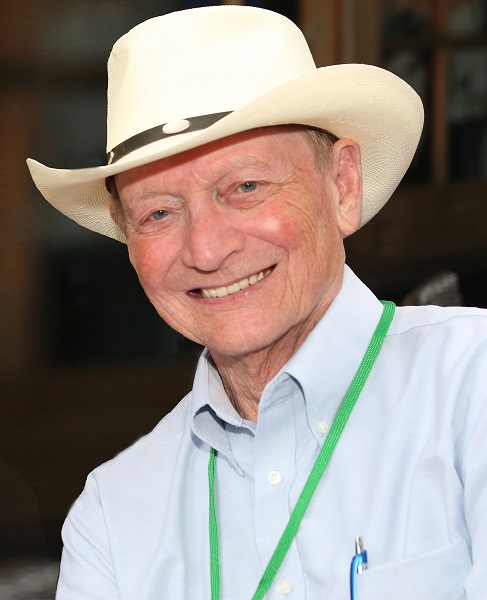Q&A with Mystery Fest Key West Guest Author Randy Rawls

Soon to appear as a headlining author at the upcoming Mystery Fest Key West, June 16-18 at the DoubleTree by Hilton Grand Key Resort, author Randy Rawls is a man of mystery. He’s past-president of the Mystery Writers of America – Florida Chapter, author of the Ace Edwards, Dallas private-eye series, the Tom Jeffries South Florida private-eye series, and the Beth Bowman South Florida private-eye series, as well as short stories in various anthologies. His latest, “Justice Secured,” is a standalone featuring Josh Hawkins, ex-Army Special Forces officer and a private investigator in South Florida.
The South Florida based author agreed to share some insights about his work and methods in advance of the Fest:
Q: Your first two book series feature male private investigators. Then along came Beth Bowman. What made you decide to write from a woman’s perspective?
RR: Two things. First, the market place. Women buy the vast majority of books sold, and women read the vast majority of books read. Second, I had recently read some female protagonist books written by “name” male authors. The best I can say is the heroines fell into one of two categories: 1) The helpless female who can’t tie her shoes without calling on her boyfriend for help, and 2) the female who was nothing more than a thinly disguised male in a skirt. I firmly believed I could do better. Thus, Beth Bowman was born.
Q: What do you find most challenging about writing from a woman’s perspective?
RR: I don’t mean to sound flippant, but getting it right. When I started Beth, I was fortunate to be in a critique group with four strong women who were good writers. I asked them to keep me on track—pull no punches. If I wandered away from the way a woman might process something or used language which was too masculine, I wanted to know. They TOLD me. Actually, I think they often enjoyed jerking me back, but they taught me, and, readers have said they taught me pretty good.
Q: To clue or not to clue? Are you a clue-dropper, or do you play your cards close to the chest?
RR: Clue-dropper. I’d like to say I plant them carefully, but that would be a lie. As I go through the story, I discover that I planted a clue many pages before that fits the twist I have in mind. When that happens, I’m surprised and pleased. Of course, sometimes I plant what I consider a clue at the time, but it turns out it was only a “red herring.” In that case, I am also surprised and pleased.
Bottom line, I suppose, is I’m never sure when I’m planting a clue, a red herring, or simply more of the story. But, it’s all fun.
Q: Write then edit? Or edit as you go?
RR: Edit as I go. Since I don’t work from an outline, I choose to review the previous effort before launching into new material. Naturally, as I review, I edit. So, in theory, when I reach the end, the book has been thoroughly edited. But, that’s not true either. I let the book “cool” for 30 to 60 days, then print it out and read it with my editor’s eye turned on. Hopefully, by the end of that read, it is ready. Of course, my critique group has been helping me catch mytypos and other assorted naughties.
Q: Have you ever regretted killing off a character?
RR: Oh, yes. In my first Tom Jeffries thriller, I killed off a good guy. I thought it had to be done or Tom’s escape from catastrophe would never be believable. Tom and I shed a tear at his loss, but moved on. Then, in book 2, I needed that character. There was simply a hole without him. He fit perfectly for the role I needed played. Initially, I struggled, trying to come up with a substitute, but finally found one that I think worked. But, zapping that first guy was a mistake I will try to never make again.
Also, in my first Beth Bowman book, I almost did the same thing. One of the nasties went down from multiple bullet wounds. A reader could easily surmise that he died. In Book 3, I needed him, so I went back and read the portion where he was shot. Satisfying myself that he could have survived, I brought him back as a crippled and weakened man. He worked out great in the role I gave him.
The moral I’ve learned: be careful who you kill. You may need them again.

